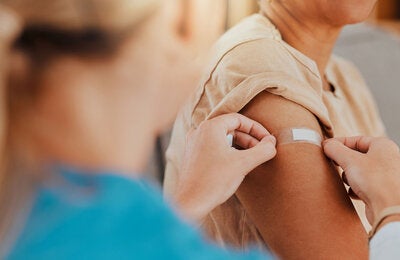

The International Day for Disaster Reduction, celebrated every year on 13 October, gives us an opportunity to recognize the need to include people with disabilities in disaster risk reduction activities. This year's theme: A not so obvious conversation — living with disability and disasters, calls to promote and protect the rights of people...
 In
times of disaster, emergency or conflict, people living with
disabilities become more vulnerable, and the impact of these situations
on their health is higher. The communication and mobility difficulties
they face and their limited autonomy make it necessary to think of
specific solutions and alternatives, so that these people receive the
help they need during an emergency. In the long term, their recovery can
be complicated by factors such as exclusion, lack of knowledge, the
disruption of social support networks and physical impediments.
In
times of disaster, emergency or conflict, people living with
disabilities become more vulnerable, and the impact of these situations
on their health is higher. The communication and mobility difficulties
they face and their limited autonomy make it necessary to think of
specific solutions and alternatives, so that these people receive the
help they need during an emergency. In the long term, their recovery can
be complicated by factors such as exclusion, lack of knowledge, the
disruption of social support networks and physical impediments.
The International Day for Disaster Reduction, celebrated every year on 13 October, gives us an opportunity to recognize the need to include people with disabilities in disaster risk reduction activities. This year's theme: A not so obvious conversation — living with disability and disasters, calls to promote and protect the rights of people with disabilities and to foster their active participation in decision making at all levels of disaster management.
The Pan American Health Organization/World Health Organization (PAHO/WHO) is joining in the celebration of this day and, together with Disaster Programs in Ministries of Health and national and local agencies, is participating in activities related to this day and in disseminating the message. PAHO/WHO considers it a priority to ensure that the needs of the disabled are met during emergencies and that normal patterns of care and assistance are protected, so that their treatment programs are not interrupted by disasters.
People with special needs are particularly vulnerable to marginalization during emergencies and are exposed to greater stress, higher risk of malnutrition and limited access to hygiene and secondary care; the consequences of the latter can include infections and the worsening of previous illnesses. For this reason, during the response phase and for the post-disaster health care it is imperative to have available the necessary supplies of medicines, trained caregivers, mental health experts, assistance devices—such as wheelchairs—and treatment programs.
Inclusion in preparedness, response and reconstruction activities
It is important to regard people with disabilities not only as beneficiaries, but also as actors in the humanitarian response. They should participate in the design, implementation, monitoring and evaluation of assistance programs.
In this context, the International Day for Disaster Reduction is an opportunity to achieve a society better prepared to respond to the needs of all population groups, including the more than one billion people living with disabilities in the world—15% of the world population—and promoting their active participation in all planning processes for disaster risk reduction.
We should also not forget that older people could have physical or psychological impairments that could require especial assistance during emergencies. All emergency programs should recognize the rights of older people, their needs and their capacities. In addition, disasters can produce new groups of people with disabilities, or cause new injuries to those already disabled, who will need increased support and assistance. Ensuring proper health care during disasters will significantly reduce the number of future disabilities.
Additional information:
- New! Guidance Note on Disability and Emergency Risk Management for Health
- The guide Psychosocial Support in Emergencies and Disasters (in Spanish only) includes a chapter (eight) on the care of people with disabilities and one on the care of older people (nine)
- Guidelines for Mainstreaming the Needs of Older Persons in Disaster Situations in the Caribbean



